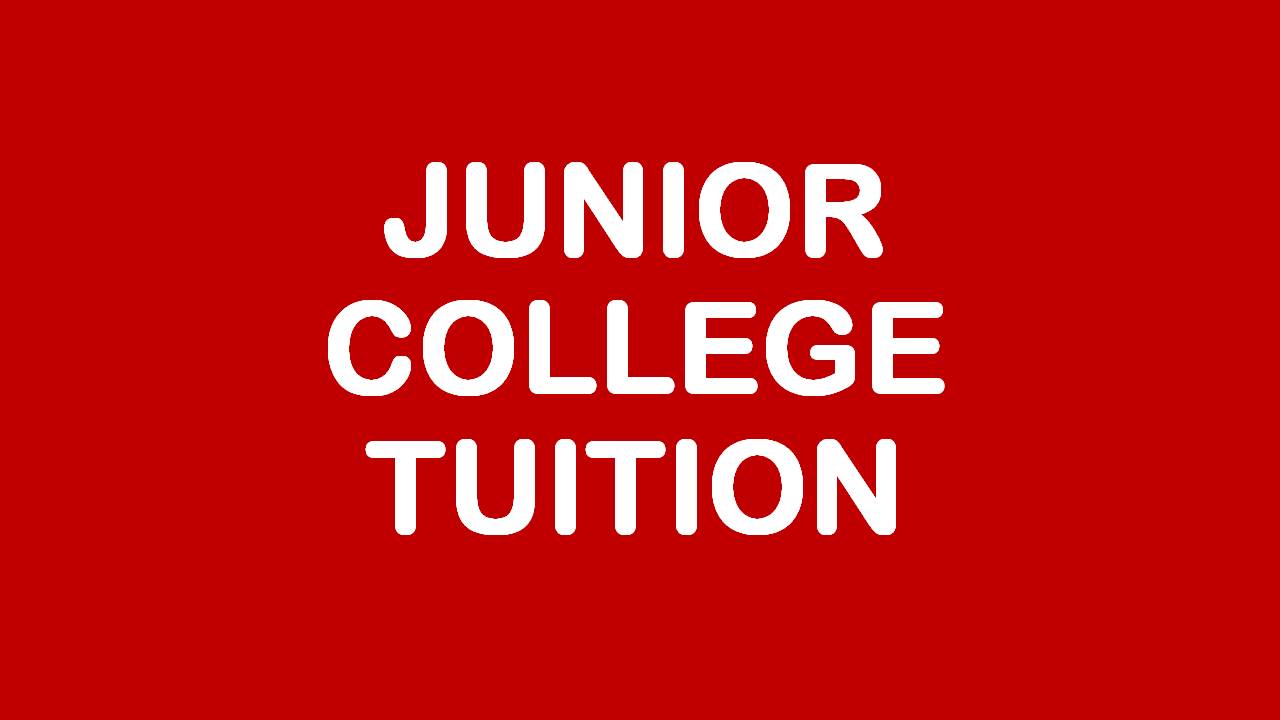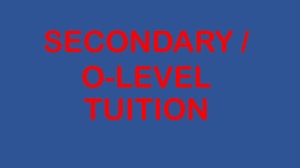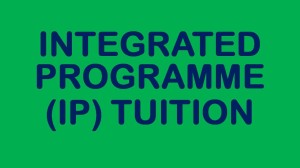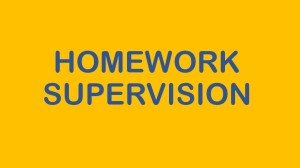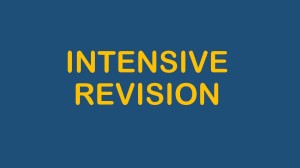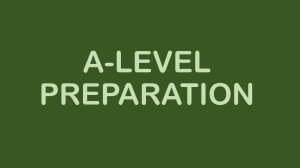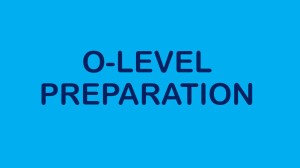I didn’t know there is such a grade as A1*. Does it exist only in RVHS? Anyway, today my S3 Math student Ryan told me he obtained that grade for his Term 1 Math. He had been doing well so far this year, but it wasn’t the case 2 years ago when he first came.
I’ve always said that IP students should not be doing badly in math in the first place, for the simple reason that most of them obtained A* for math at the PSLE. But many IP students DO perform poorly in math right from sec 1. When Ryan showed me his test answers back then, I could immediately tell what his problem was. So I gave him some diagnostic questions to confirm my suspicion about his weak areas. Continual coaching and many lessons later, his math became OK and now it is of a high standard.
But it takes two hands two clap. Ryan succeeded not only because he sought help early, but also because he has developed a learning disposition that is typical of eventual top students. So if you want to improve your grades, please do the following:
Always THINK about what you are doing. ASK QUESTIONS when something about what you are learning or solving doesn’t seem to fit in (i.e it causes a dissonance in you). READ A LOT so that your knowledge base is sound to begin with. Always REFLECT on your own learning, your solutions, and even your questions.
WHAT YOU ASK REFLECTS A LOT ABOUT YOU. That is why you must ask a lot of questions, so that your teacher or tutor knows what your problem is. Of course you might get some scolding along the way, but that is how you learn even more.
Happy Learning!
Ilyasa
A good reminder for your exams ….
“Mind what you have learned. Save you it can.”
– Master Yoda (in the Empire Strikes Back)
: )
My P5 daughter topped her class in a recent science test.
She obtained 28 out of 30 marks. Of course immediately I asked her about the missing two marks (as though the 28 are not important, but hey, i’m Singaporean u know).
Rahmah has formal science tuition once a week, taught by Mr Lim at my home centre. But almost everyday, she gets to ask her elder sister, my wife and me about science. She’s not really interested in science, except for rocks and minerals which she buys and collects.
My technique is to teach my children science whenever and wherever I can, as my time with them is not much (when I’m free, they would be in school and when they are ‘free’, I would be giving tuition to other people’s children).
Of course it helps that I’m a physics tutor, with lots of knowledge about chemistry as well. I only get irritated when my children ask me about factual biology questions, such as the parts of a plant cell. For that, I normally ask them to use the internet. This is to develop them to be more resourceful and not to immediately rely on others for answers.
If you want your children to be good in science, ask them to read a lot about science and make them think about what they see around them. For eg, ask them why is it easier to cut chicken with a knife than with a metal ruler. In science, you can’t just say it is because the knife is sharper; the scientific answer has to do with force and surface area, or pressure.
Rgds,
Ilyasa
===============================================================
For our latest timetable, click here => 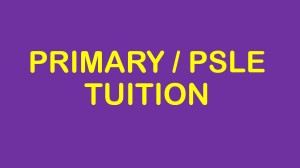
Effective learning occurs when …..
Constructivist views of learning stress the active role of the learner in building understanding. Many learning theories based on cognitive psychology propose that “effective learning occurs when individuals construct their own understandings.” (p.3)
There are three kinds of constructivism: personal, social and information processing.
Personal constructivism refers to the learner’s internal mental state and transformations of understanding that arise within the individual.
Social constructivism refers to the learner’s building of knowledge in a social context, the making of meaning through shared experiences or interactions with others.
Information processing constructivism refers to the learner’s selecting, organising and integrating of new experiences with existing knowledge to build understanding.
Central to the constructivist view of learning is that there is an active participation of the learner, and a shift in focus from what the teacher may do to facilitate learning to “what the learner does as an active agent in the learning process.” (p.4)
Reference:
McInerny, D. M. & McInerny, V. (2006) Educational Psychology, Constructing Learning. NSW: Pearson Education.
_______________________________________
TUITION CLASSES:
_______________________________________________________________
EDUCATIONAL SERVICES:
______________________________________________________________
By EX-MOE TEACHERS & EXPERIENCED TUTORS
@ BLK 644, BUKIT BATOK CENTRAL, #01-68. S(650644).
CALL 65694897 OR SMS 98530744 OR 97860411.
Metacognition enhances learning
Various studies have revealed that metacognition helps to enrich students’ learning in different domains. For example, it has the potential to increase students’ capacities for independent learning (Ganz & Ganz, 1990).
Research also shows that knowledge of metacognition, such as being familiar with one’s strengths and weaknesses and searching for ways to overcome the latter, contributes to more effective learning (Bransford, Brown, & Cocking, 1999). Research also suggests that metacognition improves one’s chances of success when it comes to completing activities that rely heavily on thinking processes (Garner & Alexander, 1989; Pressley & Ghatala, 1990).
Many studies in metacognition have concluded that those who have advanced metacognitive abilities are more adaptable and steadfast in problem solving (e.g., see Artzt & Armour-Thomas, 1992; Swanson, 1990). Studies have also shown that one’s ability to plan and monitor a problem-solving process requires several metacognitive skills such as regulation and evaluation of thought processes (Mayer, 1999), and the use of metacognitive skills has the potential to identify the more able students from the less able ones (Pellegrino, Chudowsky & Glaser, 2001).
In addition, research has shown that one’s individual and group learning skills can be improved through the acquisition of metacognitive competencies (White & Frederiksen, 2005). Recent studies have also revealed that students who often fail to choose appropriate strategies, monitor or regulate their work, or articulate their thought processes are more likely to perform poorly in mathematics (e.g., see Lucangeli & Cabrele, 2006; Carlson & Bloom, 2005).
Note: The above paragraphs are adapted from my minor research paper, Examining Supports for Metacognition in Singaporean Lower Secondary Mathematics Textbooks, NIE, 2011. All rights reserved.
Related links:
(1) Metacognition – The secret to learning and problem-solving;
(2) Metacognition and problem-solving;
(3) Is Metacognition part of the Singapore Math curriculum?
_______________________________________
TUITION CLASSES:
_______________________________________________________________
EDUCATIONAL SERVICES:
______________________________________________________________
By EX-MOE TEACHERS & EXPERIENCED TUTORS
@ BLK 644, BUKIT BATOK CENTRAL, #01-68. S(650644).
CALL 65694897 OR SMS 98530744 OR 97860411.
Metacognition and mathematical problem solving
Metacognition is a crucial element in problem-solving, which is itself a key component in mathematics learning. To monitor and regulate one’s cognitive processes in problem-solving, Polya (1945) describes a four-step method: first, one has to comprehend the problem by sub-dividing it into more manageable parts and recognize any given data, conditions and variables to be found; second, one devises or selects a strategy to find the connections between the known data and the unknowns to be found; third, one executes the plan, scanning, regulating and examining each step; and, finally, after obtaining the solution, one evaluates the results which may involve re-visiting the previously taken steps.
Building on Polya’s work, Schoenfeld (1987) describes effective mathematical problem-solving as being contingent on how one uses four types of knowledge/skills: (1) resource knowledge, which is knowledge about one’s abilities and cognitive processes including knowledge of how to perform tasks or procedures; (2) heuristics, which are specific problem-solving methods or strategies; (3) regulatory processes, which includes the organisation and selection of resources and strategies; and (4) beliefs, which includes perceptions of and assumptions about mathematics (Gama, 2004).
Note: The above paragraphs are adapted from my minor research paper, Examining Supports for Metacognition in Singaporean Lower Secondary Mathematics Textbooks, NIE, 2011. All rights reserved.
Related links:
(1) Metacognition – The secret to learning and problem-solving;
(2) Metacognition enhances learning;
(3) Is Metacognition part of the Singapore Math curriculum?
_______________________________________
TUITION CLASSES:
_______________________________________________________________
EDUCATIONAL SERVICES:
______________________________________________________________
By EX-MOE TEACHERS & EXPERIENCED TUTORS
@ BLK 644, BUKIT BATOK CENTRAL, #01-68. S(650644).
CALL 65694897 OR SMS 98530744 OR 97860411.
Metacognition – The ‘secret’ to learning and problem-solving …
You don’t have to be ‘good in English but bad in Math’, or ‘good in Science but lousy in History or Literature’, or ‘good in Chinese but lousy in English’. It doesn’t have to be a one-or-the-other kind of thing. Every subject has its own way of learning and thinking about, but you can only discover it if you bring yourself one level up – think about the thinking itself, and think about how you learn. You can only learn how to learn if you think about learning. You can only learn how to think if you think about thinking.
Thinking about thinking has another name: metacognition, which formed the basis of my minor research work completed in 2011 at the NIE. A lot of research into metacognition centers around mathematical problem-solving, although metacognition can be applied equally well to other subjects. So for the purpose of illustration here, I will use math as the basis for our discussion about metacognition.
What is Metacognition?
In its simplest form, metacognition can be described as thinking about thinking (Wellman, 1985). Flavell (1976) has stated some examples of what constitutes metacognition:
I am engaging in metacognition if I notice that I am having more trouble learning A than B; if it strikes me that I should double-check C before accepting it as a fact; (…)if I become aware that I am not sure what the experimenter really wants me to do; if I sense I had better make a note of D because I may forget I; if I think to ask someone about E to see if I have it right. (p. 232).
The above sounds familiar, doesn’t it? Yes, you may have been practising metacognition sub-consciously, all your life, without realising it has a formal name, or without realising how important it is to learning and thinking.
Research in metacognition has examined various forms of cognitive processes by building on Flavell’s initial notion of metacognition as the monitoring, regulation and arrangement of thinking processes to achieve specified goals (Gama, 2004).
For example, Brown (1987) argues that metacognition consists of two components: knowledge of cognition, and regulation of cognition. The former involves being aware of one’s cognitive abilities through self-reflection while the latter pertains to mental activities such as monitoring and controlling one’s thinking processes in the course of learning or problem-solving. According to Brown, although these two types of metacognition are distinct from one another, they are usually used together in the same cognitive process as one type often utilises the service of the other (Gama, 2004).
Note: The above paragraphs are adapted from my minor research paper, Examining Supports for Metacognition in Singaporean Lower Secondary Mathematics Textbooks, NIE, 2011. All rights reserved.
Related links:
(1) Metacognition and problem-solving;
(2) Metacognition enhances learning;
(3) Is Metacognition part of the Singapore Math curriculum?
TUITION CLASSES:
_______________________________________________________________
EDUCATIONAL SERVICES:
______________________________________________________________
By EX-MOE TEACHERS & EXPERIENCED TUTORS
@ BLK 644, BUKIT BATOK CENTRAL, #01-68. S(650644).
CALL 65694897 OR SMS 98530744 OR 97860411.
Quotes – On the relationship between money and intelligence……
“You don’t have to be rich to be clever.” – Ikea.
“You don’t have to be clever to be rich.” – Kishore (my student, 2011)
Quote – On the importance of Asking Questions ….
“The formulation of a problem is often more essential than its solution, which may be merely a matter of mathematical or experimental skill. To raise new questions, new possibilities, to regard old problems from a new angle, requires creative imagination and marks real advances …..” – Albert Einstein.
